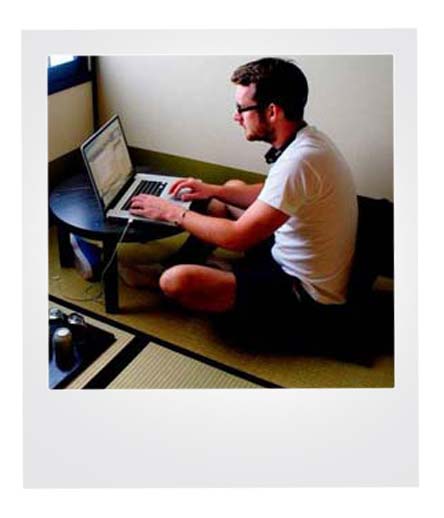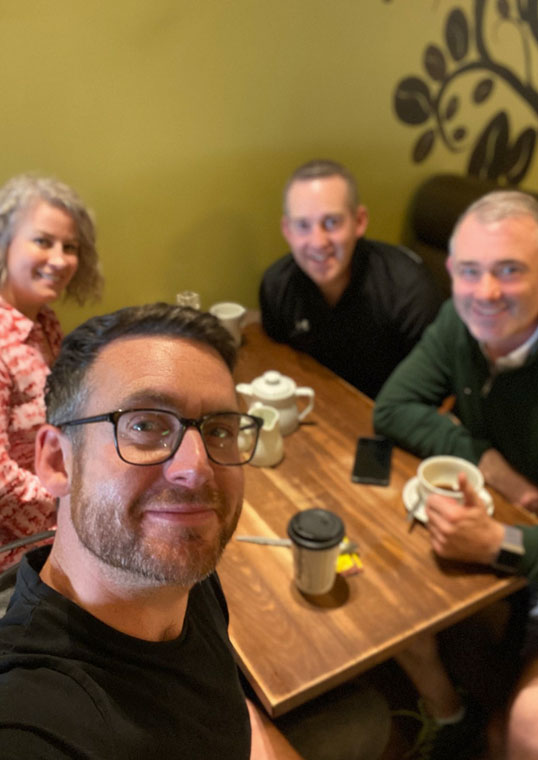Is Bigger Always Better?

I’ve always felt that growth isn’t necessarily always good. In my experience, growing for the sake of it can often do more harm than good to a business. This isn’t a hard-and-fast rule, but it’s a perspective that has shaped how I’ve approached work and business throughout my life.
For me, staying small has always been a valid and intentional goal. It’s not about rejecting growth outright but about questioning whether it’s truly necessary and whether it aligns with my broader goals. My focus has always been on creating a work-life balance where my work supports the lifestyle I want, not the other way around.
Society often assumes that bigger is better when it comes to business. But I’ve found that doing less - fewer clients, fewer employees, fewer products - can actually lead to having more: more freedom, more time, and often more financial stability. Of course, this approach won’t suit everyone, but I’ve seen its benefits firsthand.


Rethinking Growth
Growth is often seen as the ultimate measure of success, but I’ve observed how unchecked growth can derail even the most promising ventures. Take the example of Pets.com during the dot-com boom. They spent $17 million on advertising in one quarter, despite earning just $8.8 million in revenue. The result? They lost almost $300 million.
Even established companies aren’t immune. Starbucks, for instance, expanded into areas far removed from its core strengths, such as CDs and sandwiches, only to scale back and refocus on what it does best—coffee.
These examples remind me that growth isn’t inherently good. It’s worth asking whether it serves a purpose or simply adds unnecessary complexity.
Staying Small with Purpose
I’ve come to see staying small as an intentional strategy rather than a limitation. It’s about examining whether growth is genuinely needed and, if so, finding ways to achieve it with the same—or even fewer—resources.
This mindset isn’t just for freelancers, either. While freelancing often involves trading time for money, my approach focuses on building a sustainable business model that aligns with my goals and remains resilient in any economic climate.

Purpose Over Passion
For me, having a clear purpose is non-negotiable. Purpose is what drives decisions, actions, and long-term strategy. While passion can be a great motivator, I’ve found that it’s purpose that provides the steady foundation needed for sustained success.
I also challenge the notion that busier is better. Productivity isn’t about cramming more into each day but about focusing on what truly matters. This perspective has shaped how I approach new projects—I prefer to start small, test ideas quickly, and refine based on real feedback. It’s an iterative process that builds momentum without overcommitting resources.
Scaling Smarter, Not Larger
Scaling doesn’t have to mean growing bigger. I’ve always leaned on scalable systems that allow me to expand impact without adding unnecessary complexity. This approach ensures that I can remain agile while achieving meaningful results.

Building Authentic Relationships
I’ve always believed that every business or brand has a personality. For me, it’s about authenticity and clear communication. These principles not only help attract the right clients but also build trust and loyalty over time.
Happy clients have always been my best marketing tool. Word-of-mouth referrals hold far more value than any expensive advertising campaign. This focus on relationships ensures that my work has a lasting impact.
Starting with Intent
Starting a business isn’t for everyone. It demands adaptability, a willingness to learn, and the ability to juggle multiple responsibilities. For those considering the leap, I often suggest starting part-time to build skills and a customer base before fully committing.
It’s also important to consider how your business aligns with your lifestyle. Personally, I set clear boundaries—both minimum and maximum goals—to avoid the pitfalls of endless growth. For instance, Southwest Airlines deliberately limited its expansion to maintain profitability while others faltered. This kind of discipline has always resonated with me.
A Balanced Approach
Ultimately, I aim to make my business better, not just bigger. By focusing on what I can achieve with existing resources, I’ve been able to maintain a balance that works for me.
This perspective might not suit everyone, but for those looking to build a business that supports their life rather than consuming it, I hope these ideas offer some food for thought. It’s about staying focused, remaining resilient, and achieving success on your terms.